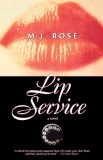Summary | Excerpt | Reviews | Readalikes | Genres & Themes | Author Bio

Chapter One
September 23, 1996
Five Weeks Earlier
Like most visitors to the New York Botanical Garden, I'd always seen them during the day in sunshine when the colors of the flowers and foliage were bright and their groomed perfection was obvious. But that evening, as we rode up the winding road that led through the gardens, the brilliance of the gardens was concealed by the encroaching twilight. Rather than the cultivated postcard I was familiar with, I found I preferred the mystery that loomed before me now as the shadows deepened. What was hiding in the old branches of the tall elm? In the twisted limbs of the maple? What was it that made the needles of the spruce quiver? Why did the forest seem more spirited in this dusky light? Then we rounded a turn and the illuminated conservatory blossomed out of the darker greenery surrounding it.
Our car pulled to a stop. Photographers waiting in front of the building started shooting as soon as the chauffeur opened the limo door. I have a grainy photo of us clipped from that weekend's New York Times roundup of charitable events. Judging from the composition of the shot, the photographers were obviously favoring my husband, who was charming them with his wide smile and sparkling eyes. The wind had blown his thick hair -- black, streaked with gray -- and he boyishly reached up to brush it back. He was so good at performing for the camera, he did it effortlessly.
There is much that is telling about the photograph. At first it seems no more than a snapshot for the society pages. The caption: "Dr. Paul Sterling, director of FIT, and his wife, Julia, arriving at Thursday night's fete with the honoree, basketball coach Bob Wilcox." But Bob, who should have been featured (he was, after all, the celebrity and guest of honor), is slightly out of focus and to Paul's left.
I am behind my husband, in his shadow.
All of us are well dressed; the two tall men in tuxedos, I in a floor-length, pale gray, long-sleeved column of crepe de chine by Armani. A ghost in the background -- which was how I often felt at my husband's fund-raising events.
That night, my straight blond hair was pulled back and twisted into a slick chignon, a style Paul preferred. Earlier, he'd been looking at himself in the hallway mirror, removing a speck of dust off his lapel, when I came out of the bedroom. He nodded his approval. "You look elegant. The gray of the dress is the same color as your eyes," he said to my image in the mirror. It occurred to me his polished voice was too smooth. My husband, who long before had abandoned his Jewish, middle-class background and Long Island accent, appreciated style more than beauty, believing it to be one of the few indications of true class. He turned to me and touched my hand lightly with his. Not sexually, but as if I were a touchstone.
Now, as I look at the photograph from that night, I seem absent. Smoke about to evaporate in the much more vibrant presence of my husband. His eyes are engaged. Mine are vacant. His smile seems genuine; mine seems pasted on for the cameras. He is there in mind and body, I only in body. And not for long at that.
He had been looking forward to the event; I had been looking forward to its being over. I had no sense that the evening would be a pivotal one, setting certain events in motion that we would be powerless to reverse. There are moments like that -- impossible to sense when they are upon us -- their importance conceivable only in hindsight.
Even if we weren't aware of it, Paul and I, and to a lesser degree our son, Max, were ready for what was to come. We had already changed directions. The time had come to acknowledge it. Was that why I had such a strong desire to be somewhere -- anywhere -- else that night? Or was it just that playing hostess to Paul's host at charity dinners was wearing on me? Disliking the fawning status seekers, the celebrity mongers, the socialites, and the small talk, I was unnerved by my role. I survived evenings like that by putting on a mask and becoming a gracious character, agreeable and amiable.
Copyright © 1998 by M.J. Rose
Your guide toexceptional books
BookBrowse seeks out and recommends the best in contemporary fiction and nonfiction—books that not only engage and entertain but also deepen our understanding of ourselves and the world around us.